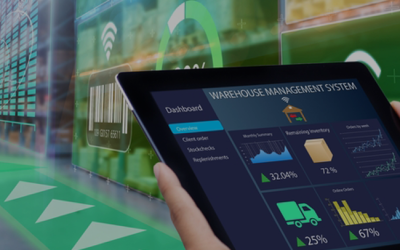Enhancing product quality and plant safety with vision-based computing
Video Blog (vlog) – Enhancing Product Quality and Plant Safety with Vision-based Computing
Vision-based computing or computer vision, aka machine vision, has grown tremendously in the last few years. The key reasons for the growth lie in the availability of affordable hardware, the growth in data sets and maturity in the science of Artificial Intelligence (AI) and Machine Learning (ML). With the COVID-19 pandemic accelerating digital adoption, vision-based analytics is bound to find wide-spread applications in several industries including manufacturing. The extraordinary drive for work place safety, the need for automation to improve productivity, and access to better quality will be the key drivers for the growth in vision-based computing. One indicator of its bullish future is reflected in a recent survey that found AI in computer vision market size would reach $144.46B by 2028 from $7.04B in 2020 (a CAGR of 45.64% from 2021 to 2028). Manufacturers who do not study use cases for vision-based computing in their organizations could lose out on the promise of generating business value and creating competitive differentiation.
An area where vision-based technology can be applied with great success is quality inspection. Take the case of manufacturing cookies in the food and beverage industry. Operators are deployed on production lines to check the quality of the output. They must examine each cookie for conformance to color, texture, shape, size, nut coverage and several other factors and benchmarks. These are important in an industry where consumers assess products visually. Human bias – even human fatigue or distraction — can affect the inspection process. Options such as interval sampling of products in a lab can improve the process but they too leave the gates open to flawed products reaching the market.
The solution is in using AI and ML-based algorithms to examine each cookie. Cameras scan the live production line before packaging, accurately picking out cookies that do not meet the pass range for quality. Even when samples are examined in an off-line mode in a lab, vision-based computing removes subjective biases.
Once a cookie on a production line is identified for non-conformance, a simple drop mechanism removes the cookie from reaching the packaging process.
Vision-based computing has several applications in factory environments. Most manufacturing plants already have several CCTV cameras used to monitor activity, human safety and business security. The number of cameras on a production floor can number anywhere between 30 and 100 – a number impossible for humans to continuously scan for aberrations. This is why these cameras are usually used after the fact, to investigate incidents.
However, the camera feeds can be analyzed in real time based on EHS guidelines and even used for automated risk audits. This means the investment already made in video monitoring can go the extra mile by identifying hazards in different work areas such as slippery floors, accumulation of materials, obstacles in pathways, missing or inadvertent obstructions around firefighting equipment, violation of safety norms by employees (such as not wearing hard hats or fall arrestors), unauthorized entry of personnel in restricted areas, and the entry and exit of vehicles in plants, warehouses, collection points and so on.
Not only can vision-based computing prevent issues or generate real-time alerts, but the data can also improve processes. For example, supervisors can immediately know how many vehicles are parked in a certain area, what type of vehicles are parked and for how long, the time taken to offload material from any vehicle—each data point allowing the supervisor to take quick and accurate decisions.
Vision-based computing is here to stay. And the race to adopt it has just begun.
Author:
Siddaraju G,
Senior Principal Consultant,
Business Consulting Group,
ITC Infotech











